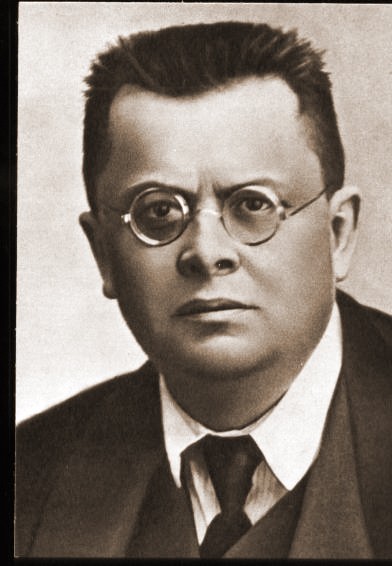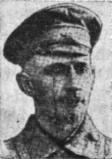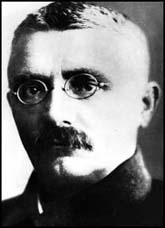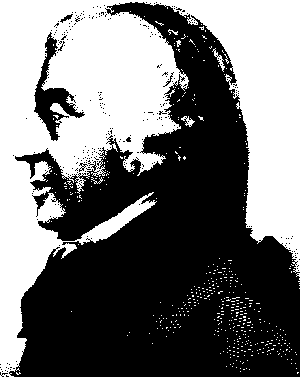Sm
Smeral, Bohumir (1880-1941)
 Czech Social Democrat who initially supported World War I, was a right-wing leader of the Czechoslovak Communist Party. In 1926 he became a member of the ECCI and remained in Moscow for several years, a faithful deputy of Stalin. After the Munich Pact (1938), he returned to the Soviet Union.
Czech Social Democrat who initially supported World War I, was a right-wing leader of the Czechoslovak Communist Party. In 1926 he became a member of the ECCI and remained in Moscow for several years, a faithful deputy of Stalin. After the Munich Pact (1938), he returned to the Soviet Union.
Smilga, Ivar Tenisovich (1892-1938).
 Chairman of the Regional Committee of the Russian Soviets in Finland in 1917, and at the time of the October Revolution was the leader of the Bolsheviks in the Baltic Fleet, a confidant of Lenin, the Latvian, Ivars Smilga, was one of the oldest party leaders. Smilga was elected to the Central Committee of the Bolshevik Party in April 1917 and later belonged to the Military Revolutionary Committee. Together with Tukhachevsky, he led the Seventh Army against the Polish Army of Pilsudski in 1921. Smilga was vice-chairman of the Supreme Council of National Economy from 1921 to 1928, and of the Government Planning Commission from 1924 to 1926 and a member of the Left Opposition, but along with Preobrazhenky, reconciled with Stalin at the time of the ultra-left "Third Period" around 1929. But Stalin had Smilga expelled from the Central Committee and later from the Party. When he was banished to Siberia, a demonstration of about a thousand people gathered at the railroad station to protest. He was arrested in 1933 and condemned as a terrorist during the first Moscow Trial. The historian Vadim Rogovin quotes the occasion when, facing his Stalinist interrogators, Smilga said, "I am your enemy." Smilga was most likely executed in 1938.
Chairman of the Regional Committee of the Russian Soviets in Finland in 1917, and at the time of the October Revolution was the leader of the Bolsheviks in the Baltic Fleet, a confidant of Lenin, the Latvian, Ivars Smilga, was one of the oldest party leaders. Smilga was elected to the Central Committee of the Bolshevik Party in April 1917 and later belonged to the Military Revolutionary Committee. Together with Tukhachevsky, he led the Seventh Army against the Polish Army of Pilsudski in 1921. Smilga was vice-chairman of the Supreme Council of National Economy from 1921 to 1928, and of the Government Planning Commission from 1924 to 1926 and a member of the Left Opposition, but along with Preobrazhenky, reconciled with Stalin at the time of the ultra-left "Third Period" around 1929. But Stalin had Smilga expelled from the Central Committee and later from the Party. When he was banished to Siberia, a demonstration of about a thousand people gathered at the railroad station to protest. He was arrested in 1933 and condemned as a terrorist during the first Moscow Trial. The historian Vadim Rogovin quotes the occasion when, facing his Stalinist interrogators, Smilga said, "I am your enemy." Smilga was most likely executed in 1938.
Smillie, Robert (1857-1940)
Born in Belfast; a miner in Lanarkshire, Scotland from 1874. Secretary of the Larkhill Miners' Association, 1885; President of the Scottish Miners' Federation, 1894-1918. Vice-President of the Miners' Federation of Great Britain, 1909-1912; President 1912-21. On the TUC Parliamentary Committee 1918-19; member of the General Council, 1921-27. Stood several times for parliament from 1899 but refused the post of Food Controller in the 1919 Coalition government. MP for Morpeth 1923-29.
Smirnov, Ivan (c. 1880-1936)
 Ivan Smirnov, the son of a peasant farmer, was born in Ryazan, Russia. The family moved to Moscow but his father soon died and his mother worked as a domestic servant.
Ivan Smirnov, the son of a peasant farmer, was born in Ryazan, Russia. The family moved to Moscow but his father soon died and his mother worked as a domestic servant.
After a brief formal education Smirnov found work in a local factory. In 1898 he was recruited into the Social Democratic Labour Party by students in Moscow. The following year he was arrested and deported to Siberia for five years.
Smirnov escaped in 1900 and went to work in a tannery in Tver. He took part in a strike in May, 1904, and this resulted in him being imprisoned. Soon after his release he was involved in the 1905 Revolution and once again he was arrested and deported to Irkutsk.
He returned to Moscow after his imprisonment but in 1909 he was arrested for distributing illegal propaganda. Deported to Narym he escaped in 1913 and settled in Kharkov. A few months later he was back in prison where he remained until being forced to join the Russian Army in 1916.
Once again he escaped and returned to Moscow where he help organize the strikes that led to the February Revolution. He also joined the Executive Committee of Soldiers Deputies.
During the Civil War Smirnov became a member of the Fifth Army. After the defeat of Alexander Kolchak he was made Chairman of the Siberian Revolutionary Committee. However, his support of Leon Trotsky resulted in him being ousted from power in 1922.
Smirnov was an active member of the Left Opposition and in 1927 was expelled from the Communist Party. In 1934 the new head of the NKVD, Genrikh Yagoda, arrested Smirnov, Lev Kamenev, Gregory Zinoviev, and thirteen others and accused them of being involved with Leon Trotsky in a plot to murder Joseph Stalin and other party leaders. He was found guilty and executed in 1936.
From Spartacus Schoolnet.
See Victor Serge The Death of Ivan Nikitich Smirnov
Smith, Adam (1723-1790)
 Scottish economist. Regarded as founder of classical economics, Smith was the first to complete a comprehensive theory of political economy. Smith saw labour as the sole source and measure of value:
Scottish economist. Regarded as founder of classical economics, Smith was the first to complete a comprehensive theory of political economy. Smith saw labour as the sole source and measure of value:
Labour is the real measure of the exchangeable value of all commodities. The real price of everything, what everything costs to the man who wants to acquire it, is the toil and trouble of acquiring it. What everything is really worth to the man who has acquired it, and who want to dispose of it or exchange it for something else, is the toil and trouble which it can save to himself, and which it can impose upon other people. ... Labour alone, therefore, never varying its own value, is alone the ultimate and real standard by which the value of all commodities can at all time and places be estimated and compared. It is their real price; money is their nominal price only.
The Wealth of Nations, 1776
Adam Smith first formulated the view that the value of goods was determined not by their use value but by their exchange value. According to this concept, the market price adjusts to the cost price. Adam Smith opposed state intervention (tariffs, import or export barriers, etc.). His theory of free trade represented the rising bourgeois class, against the backwards feudalist mentality heralded by the old aristocracy. He was a major influence on economic policy in the late 18th and early 19th centuries.
A life-long friend of David Hume and part of the "Scottish Enlightenment", Smith was also acquainted with Voltaire and others of the French Enlightenment. Smith explained that he came to the theory of political economy expressed in The Wealth of Nations from a study of "human nature" and consideration of how the innate passions of human beings became transformed into socially productive cooperation in laissez faire capitalism. He developed a "four stage" theory of history tracing how social institutions respond to development of the productive forces and culminate in pre-Industrial Revolution capitalism. Consistent with the theory of knowledge of David Hume, Smith regards value to be exclusively the product of human labour, which in turn has its source in human nature. The institutions of society and the division of labour arise historically independently of the will and understanding of human beings, but as the natural outcome of the clash of their individualism. Smith wrote in the very earliest days of the industrial revolution, but it was not the large, industrial enterprises which formed the context of his thinking, but rather, Smith was a representative of the small-scale manufacturer of the early eighteenth century.
See: Adam Smith Reference Archive
Smith, Gerald L. K. (1898-1976).
American anti-semitic, anti-black, supporter and lead organizer for US fascism in the 1930s. He launched a campaign against labor movement and communism; leading national right-wing figure during and after World War II; headed the Christian Nationalist Crusade. Often confronted by the left in the streets, his supporters were usually driven away from picket lines and meetings.